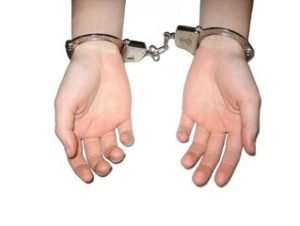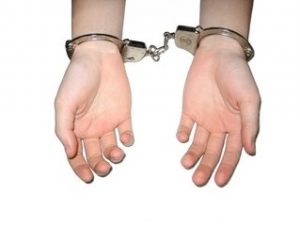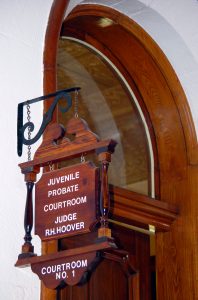Earlier this week, the Elgin Police Chief appeared before the City Council for her 2020 budget and informed the Elgin City Council that serious crime dropped approximately 17% from last year. The Chief of Police is requesting that she be allowed to hire 2 more 911 operators and 4 new part-time Auxiliary Police Officers for next year. Currently, the Elgin Police Department employees 184 sworn officers along with 85 civilian employees.
Last year, serious crime in Elgin increased by 5%. Last year’s increase was the first increase in serious crime in Elgin in 4 years. This year, there were 24 reports of shots fired in Elgin. 7 people were shot and there was 1 murder. This time last year, there were 31 reports of shots fired, 12 victims of gunshots, and 3 murders. 26 rapes were reported in Elgin this year. This time last year, 40 rapes had been reported. This represents a 35% drop in the number of rapes reported in Elgin this year. 41 batteries were reported in Elgin so far this year. This time last year, 95 batteries were reported. This represents a 57% drop in the number of batteries in Elgin. 34 assaults we reported in Elgin so far this year. This time last year, 52 batteries were reported. This represents a 35% drop in the number of assaults. 184 Burglaries to Autos were reported in Elgin so far this year. This time last year, 299 Burglaries to Autos were reported. This represents a 35% drop in the number Burglary to Autos. Last year, Burglaries to Autos increased by 18% over the previous year. The number of Thefts, Arsons, and Motor Vehicle Thefts, also decreased from last year. The number of Robberies in 2019 is at 54, which is the same as this time last year. The only serious crime that increased from last year was Burglaries which increased from 137 to 144. This represents a 5% increase in the number of Burglaries in Elgin so far this year.
The statistics for less serious crimes like Drug Offenses, Kidnappings, Simple Batteries, Assaults, Threatening the Use of Force, Disorderly Conduct, and liquor offenses, also show an overall decrease of approximately 5% from last year.
 Chicago Criminal Lawyer Blog
Chicago Criminal Lawyer Blog











 Lately, many of the phone calls I receive start off with clients telling me that they received a “speeding ticket” and asking whether they can really go to jail for their “speeding ticket.” I ask them how fast they were going, and if they were going 26 miles per hour, or more, over the posted speed limit, I have to explain what they are facing. I start off by explaining that what they received is not a speeding ticket. At least it’s not what most people commonly considered to be a speeding ticket. It’s called Aggravated Speeding in llinois. Speeding 26-miles per hour over the posted speed limit is a crime in Illinois. It’s called Aggravated Speeding and can be found at If you did not know this, don’t feel bad. Most people do not realize that speeding 26-miles per hour over the posted speed limit is a crime in Illinois until it happens to them. Sometimes, lawyers don’t even know that driving 26-miles per hour over the posted speed limit is a crime in Illinois (more on that later.) Illinois has made speeding 26-miles per hour over the posted speed limit a crime that carries potential serious consequences. Just like any other crime in Illinois, driving 26-miles per hour over the posted speed limit carries a potential jail sentence that all Illinois driver’s should be aware of. Let me explain.
Lately, many of the phone calls I receive start off with clients telling me that they received a “speeding ticket” and asking whether they can really go to jail for their “speeding ticket.” I ask them how fast they were going, and if they were going 26 miles per hour, or more, over the posted speed limit, I have to explain what they are facing. I start off by explaining that what they received is not a speeding ticket. At least it’s not what most people commonly considered to be a speeding ticket. It’s called Aggravated Speeding in llinois. Speeding 26-miles per hour over the posted speed limit is a crime in Illinois. It’s called Aggravated Speeding and can be found at If you did not know this, don’t feel bad. Most people do not realize that speeding 26-miles per hour over the posted speed limit is a crime in Illinois until it happens to them. Sometimes, lawyers don’t even know that driving 26-miles per hour over the posted speed limit is a crime in Illinois (more on that later.) Illinois has made speeding 26-miles per hour over the posted speed limit a crime that carries potential serious consequences. Just like any other crime in Illinois, driving 26-miles per hour over the posted speed limit carries a potential jail sentence that all Illinois driver’s should be aware of. Let me explain. This morning I spoke to a client who made it out of a local store last night after shoplifting a couple of items without getting caught. The client wanted to know whether they could still be arrested for shoplifting and charged with a Retail Theft even though they were not caught inside the store. The client wanted to know how long they had to arrest him and charged him with a Retail Theft and what they should do if they were contacted by the police.
This morning I spoke to a client who made it out of a local store last night after shoplifting a couple of items without getting caught. The client wanted to know whether they could still be arrested for shoplifting and charged with a Retail Theft even though they were not caught inside the store. The client wanted to know how long they had to arrest him and charged him with a Retail Theft and what they should do if they were contacted by the police. A common question I get from clients is whether they will have to go to jail if they are arrested by the police. Yesterday, I received a telephone call from a prospective client who was caught shoplifting at a local Target. When he was approached by store security, he ran out of the store and jumped into his vehicle and left the store. He noticed the security guards chase him to his car and realized that they probably had his license plate number. The next day he spoke to a police officer who told him that they they have him on video committing the crime and leaving the store and would be charging him with a Retail Theft. He wanted to know whether he would go to jail if he turned himself in as the police had asked him to. This is a common question I get from people calling me and asking for my advice. Many people do not realize what happens when they are arrested and what their rights are when they are in the custody of the police and are not free to leave.
A common question I get from clients is whether they will have to go to jail if they are arrested by the police. Yesterday, I received a telephone call from a prospective client who was caught shoplifting at a local Target. When he was approached by store security, he ran out of the store and jumped into his vehicle and left the store. He noticed the security guards chase him to his car and realized that they probably had his license plate number. The next day he spoke to a police officer who told him that they they have him on video committing the crime and leaving the store and would be charging him with a Retail Theft. He wanted to know whether he would go to jail if he turned himself in as the police had asked him to. This is a common question I get from people calling me and asking for my advice. Many people do not realize what happens when they are arrested and what their rights are when they are in the custody of the police and are not free to leave. A common question I get from clients who come into my office to talk about their Domestic Battery case is whether their Domestic Battery is a misdemeanor or a felony. The overwhelming majority of Domestic Battery cases are misdemeanors. But under certain circumstances, a misdemeanor Domestic Battery can be a felony. If you are charged with a Domestic Battery and the charge is a felony, you will be charged with an Aggravated Domestic Battery. Let me explain what a misdemeanor Domestic Battery is and what a felony Aggravated Domestic Battery is and what’s the difference between the two possible charges.
A common question I get from clients who come into my office to talk about their Domestic Battery case is whether their Domestic Battery is a misdemeanor or a felony. The overwhelming majority of Domestic Battery cases are misdemeanors. But under certain circumstances, a misdemeanor Domestic Battery can be a felony. If you are charged with a Domestic Battery and the charge is a felony, you will be charged with an Aggravated Domestic Battery. Let me explain what a misdemeanor Domestic Battery is and what a felony Aggravated Domestic Battery is and what’s the difference between the two possible charges. Earlier this week, I met with a client who was pulled over by the State Police for driving 38 miles an hour over the speed limit on the Tollway. The client did not realize that driving 38 miles an hour over the posted speed limit in Illinois is a crime. He did not realize that he could be charged with a Class A Misdemeanor for driving at such an excessive speed. He did not know that he was facing the possibility of being sentenced to one-year in County Jail and fined up to $2,500.
Earlier this week, I met with a client who was pulled over by the State Police for driving 38 miles an hour over the speed limit on the Tollway. The client did not realize that driving 38 miles an hour over the posted speed limit in Illinois is a crime. He did not realize that he could be charged with a Class A Misdemeanor for driving at such an excessive speed. He did not know that he was facing the possibility of being sentenced to one-year in County Jail and fined up to $2,500.
 Recently, I was hired to represent several clients who were charged with Failure to Yield to an Emergency Vehicle. During the course of representing these clients, I realized that many Illinois motorists do not fully understand the law when it comes to passing a stationary emergency vehicle that is stopped on the side of the road. I want to take this opportunity to discuss this law and what it involves. If you do not understand the law, and what it requires when you are passing an emergency vehicle that is stopped on the side of the road, you could find yourself with a very serious traffic ticket that could cause you to lose your license and cost you a lot of money.
Recently, I was hired to represent several clients who were charged with Failure to Yield to an Emergency Vehicle. During the course of representing these clients, I realized that many Illinois motorists do not fully understand the law when it comes to passing a stationary emergency vehicle that is stopped on the side of the road. I want to take this opportunity to discuss this law and what it involves. If you do not understand the law, and what it requires when you are passing an emergency vehicle that is stopped on the side of the road, you could find yourself with a very serious traffic ticket that could cause you to lose your license and cost you a lot of money. A very common question I get from clients with criminal cases is whether they have to appear for every Court date. Earlier today I received a phone call from a prospective client who is facing a Possession of Stolen Motor Vehicle (PSMV) case in DuPage County. He informed me that he failed to appear for his last court date and the Judge issued a warrant for his arrest with a bond of $30,000. The prospective client asked if I could file a Motion in DuPage County to have the warrant vacated without him having to show up. He also wanted to know whether he would ever have to show up to court if he hired me. Apparently, the prospective client was recently hired for a new job and his employer is not allowing him to take any days off.
A very common question I get from clients with criminal cases is whether they have to appear for every Court date. Earlier today I received a phone call from a prospective client who is facing a Possession of Stolen Motor Vehicle (PSMV) case in DuPage County. He informed me that he failed to appear for his last court date and the Judge issued a warrant for his arrest with a bond of $30,000. The prospective client asked if I could file a Motion in DuPage County to have the warrant vacated without him having to show up. He also wanted to know whether he would ever have to show up to court if he hired me. Apparently, the prospective client was recently hired for a new job and his employer is not allowing him to take any days off. Early this morning I received a phone call from a prospective client who wanted to talk to me about a “speeding ticket” they received last night for going 30 miles per hour over the posted speeding ticket on a local highway. I receive such phone calls from prospective clients almost every day. Very few people calling me for cases like this really understand what they are facing. I have written about cases like this because I handle many cases involving Aggravated or Excessive speeding. These phone calls usually start off with the prospective client wanting to talk about a “speeding ticket” they recently received. Once I find out that the “speeding ticket” is for 26 miles per hour, or more, over the posted speed limit, I usually have to explain to the prospective clients that what they are facing is not a simple speeding ticket. If you are cited for going 26 miles an hour, or more, over the posted speed limit, what you are facing is an actual criminal charge of Aggravated or Excessive Speding. Going 26 miles or more, over the posted speed limit is an actual crime in Illinois that carries a potential jail sentence. Let me explain.
Early this morning I received a phone call from a prospective client who wanted to talk to me about a “speeding ticket” they received last night for going 30 miles per hour over the posted speeding ticket on a local highway. I receive such phone calls from prospective clients almost every day. Very few people calling me for cases like this really understand what they are facing. I have written about cases like this because I handle many cases involving Aggravated or Excessive speeding. These phone calls usually start off with the prospective client wanting to talk about a “speeding ticket” they recently received. Once I find out that the “speeding ticket” is for 26 miles per hour, or more, over the posted speed limit, I usually have to explain to the prospective clients that what they are facing is not a simple speeding ticket. If you are cited for going 26 miles an hour, or more, over the posted speed limit, what you are facing is an actual criminal charge of Aggravated or Excessive Speding. Going 26 miles or more, over the posted speed limit is an actual crime in Illinois that carries a potential jail sentence. Let me explain.